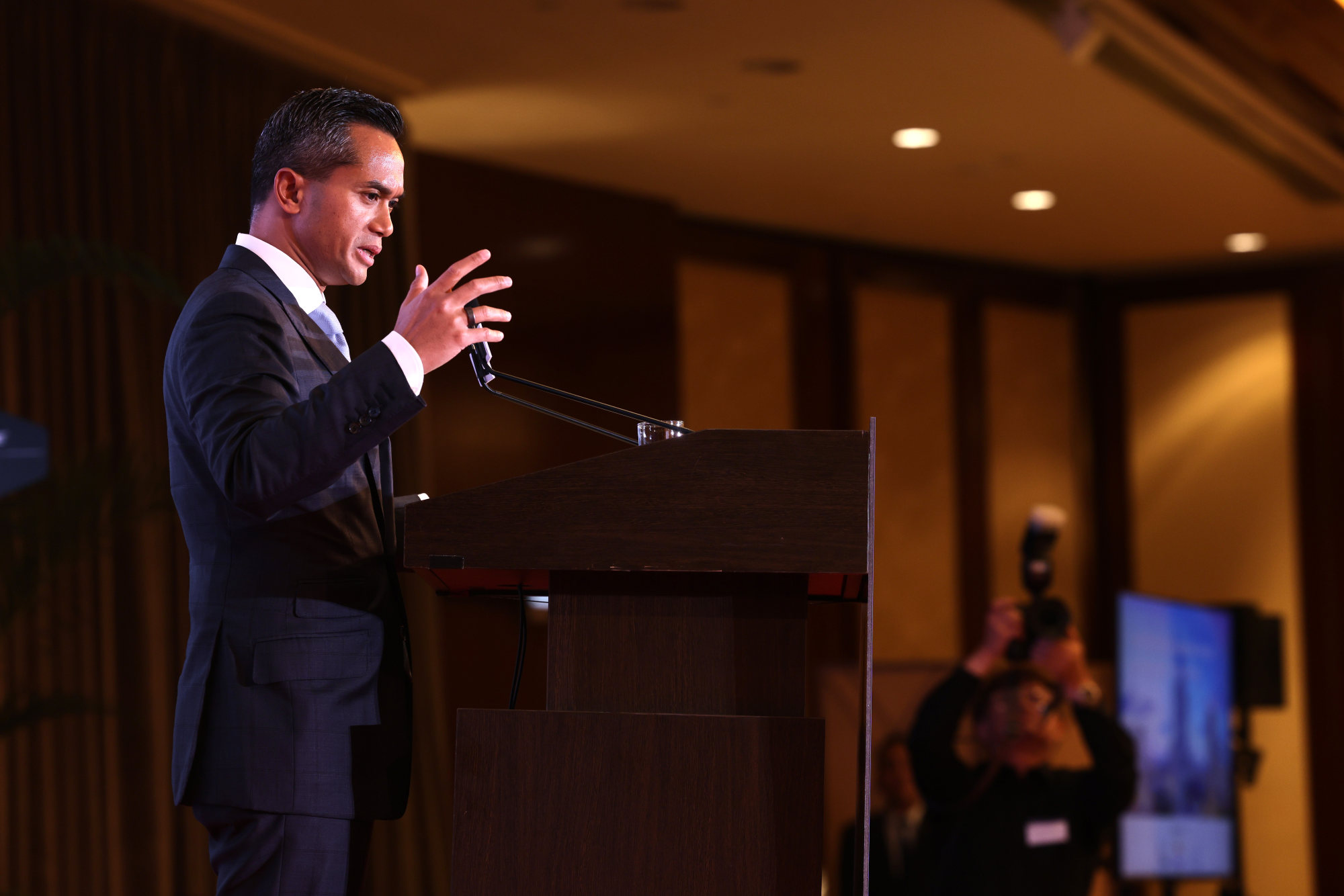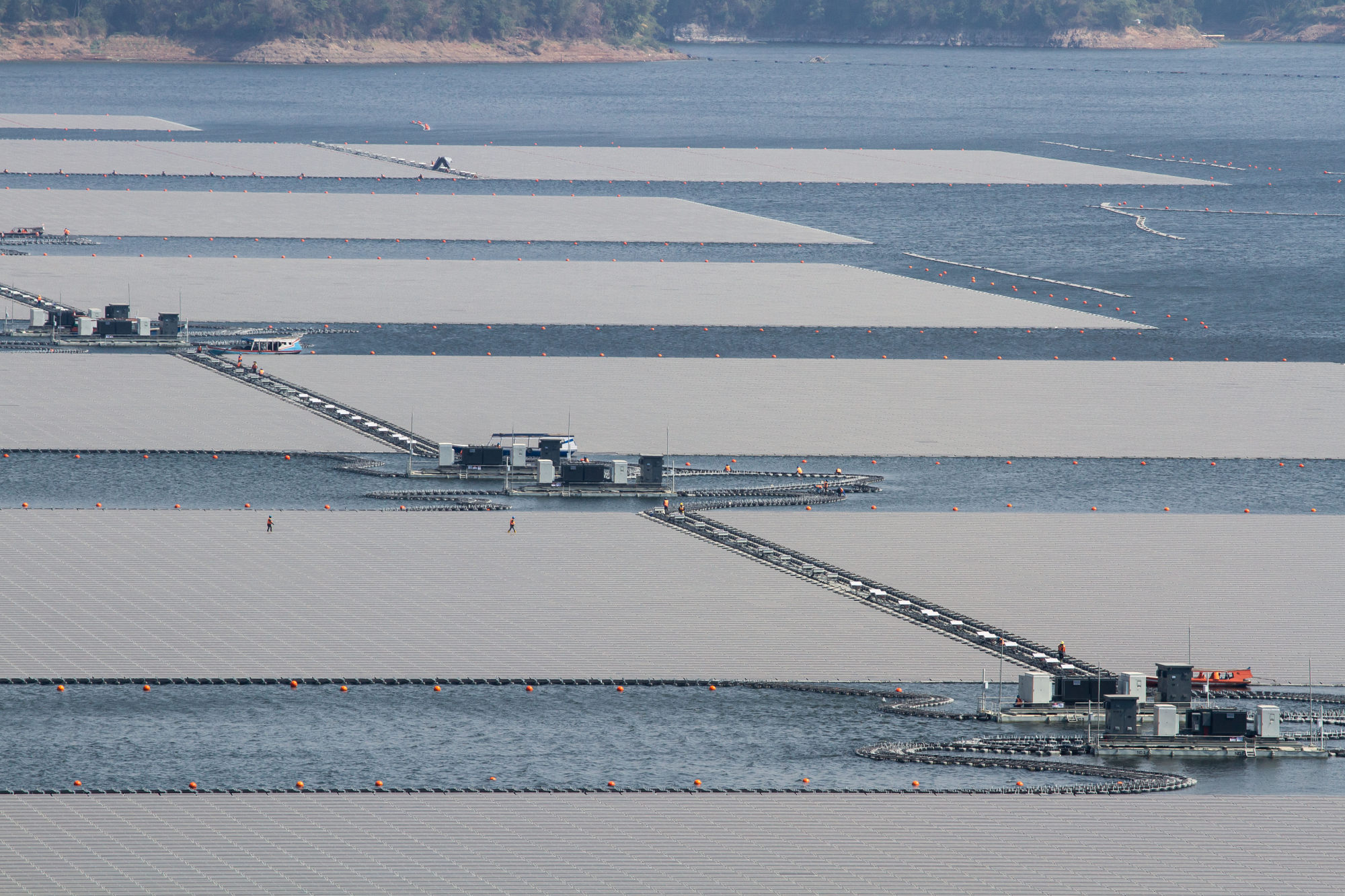
Indonesia can be ‘big bridge’ between East and West in renewable energy push, says business magnate Anindya Bakrie
- The Bakrie & Brothers CEO said Indonesia has been trying to ‘balance its trade with the West’ alongside China’s investments in the country
- He further urged Southeast Asian governments and businesses to view the green-energy transition as an opportunity rather than a net-zero initiative
For example, Indonesia – which holds the world’s largest nickel reserves – could supply Western countries with raw, processed and battery materials, he said.
China was Indonesia’s second-largest investor last year with US$8.2 billion, behind Singapore.

“You can imagine that Indonesia, one day very soon, will be having a net-zero industrial park processing nickel minerals with wind [energy] … and then selling to the West and being able to see them as premium products,” Bakrie said in an interview on Monday with This Week in Asia on the sidelines of the Hong Kong-Asean Summit 2023.
His company – traditionally focused on mining, oil and gas but that has pivoted to renewable energy – this year partnered with Chinese energy firm Envision Group to develop an industrial park in South Sulawesi that aims to process nickel using energy generated by wind and solar power plants.
Being “free and active” in pursuing opportunities in both East and West would be “ideal” for Indonesia, Bakrie said, in a nod to Jakarta’s foreign-policy approach.
“[There is] potential for Indonesia and Asean to play [the role of] a big bridge between the East and the West,” he said, referring to the Association of Southeast Asian Nations.
The businessman’s comments followed Indonesia’s proposal last month to begin talks with the United States on a trade deal for critical minerals. The two countries do not have a free-trade agreement.
Asked about the importance of Chinese partnerships amid a deepening rivalry between Beijing and Washington, Bakrie said countries had different strengths and know-how and that Indonesia had to adopt a “global view”.
Indonesia, he said, was “trying to be as balanced as possible because we need it”. Southeast Asia’s largest economy needs Chinese technologies and investments, Bakrie said, but at the same time, there is a strong demand for Indonesian products from Western markets.
While Bakrie did not see heightened competition between the two rival superpowers as an impediment for the region, he said “it is sometimes challenging to make everybody happy”.

As countries around the world chart goals for decarbonisation, Bakrie urged Southeast Asian governments and businesses to view the green-energy transition as an opportunity.
Despite Indonesia’s reliance on fossil fuels, he said the country has realised that there is value in the downstream processing of its critical materials such as nickel to support the transition.
Southeast Asia, he said, should look at the transition “in a more opportunistic way than just a net-zero initiative”.
Bakrie, whose company has supplied some 52 electric public buses for use in Indonesia – the result of a tie-up between Bakrie & Brothers and Chinese electric vehicle giant BYD – believes that the business community should take the lead in the region’s decarbonisation efforts.
According to a September 18 Reuters report, VKTR, a unit of Bakrie & Brothers, is currently in discussions with multiple Indonesian firms for commercial orders for BYD buses and does not plan to immediately enter the passenger-car segment.
“I’ve always believed in the public-private partnership. On one hand, we need good policy,” Bakrie told This Week in Asia.

Hong Kong could also contribute to the region’s growth, Bakrie said, as the city – viewed as a gateway to mainland China and a place of sound governance – would appeal to businesses eyeing collaborations with Chinese firms.
Given how robust Hong Kong’s stock exchange is compared to Southeast Asian markets, one possible area of cooperation would be the joint issuing of bonds, he said, adding that Chief Executive John Lee Ka-chiu’s trip to the region in July was a “good sign” to the business community.
“Hong Kong is trying to revitalise itself in a new way that is much more collaborative and inclusive,” he added, referring to recent efforts to jump-start the city’s economy following the Covid-19 pandemic.
“The world needs a balanced international place [for business] and Hong Kong has a lot to prove. If it can do that, I see no reason why Hong Kong cannot be back stronger.”

